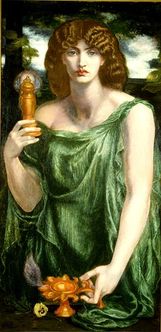

He makes this identification again at Amyklai and at Olympia, upon looking at statues and illustrations where Eos is present. Pausanias makes this identification with Eos upon looking at the tiling of the royal portico in Athens, where the myth of Eos and Kephalos is illustrated. Pausanias seems to confuse her with Eos when saying that she carried Cephalus away. Every evening Hemera's mother Nyx drew her dark veil across the sky, obscuring the the shining blue of the heavenly ether (aither), and bringing night to earth.

She was a daughter of Erebus (Darkness) and Nyx (Night) and the sister and wife of Aether (Heavenly Light). Hyginus lists their children as Uranus, Gaia, and Thalassa, while Hesiod only lists Thalassa as their child.Īccording to Hesiod's Theogony, Hemera left Tartarus just as Nyx entered it when Hemera returned, Nyx left: I searched up something about Lumine, in the greek mythology doesnt exist a goddes with her name but Lumine in latin means 'Light', and thats interesting but also kinda confusing becuase Aether, according to the greek mythology, is the God of the Light and his sister, Hemera, is the Goddes of the Daytime. Hemera was the ancient Greek primordial goddess (protogenos) of the day. She was the female counterpart of her brother and consort, Aether, but neither of them figured actively in myth or cult. The poet Bacchylides states that Nyx and Chronos are the parents, but Hyginus in his preface to the Fabulae mentions Chaos as the mother/father and Nyx as her sister. Hemera is remarked upon in Cicero's De Natura Deorum, where it is logically determined that Dies must be a god, if Uranus is a god. She is the goddess of the daytime and, according to Hesiod, the daughter of Erebos and Nyx. In Greek mythology Hemera was the personification of day and one of the Greek primordial deities. Freebase (0.00 / 0 votes) Rate this definition:


 0 kommentar(er)
0 kommentar(er)
